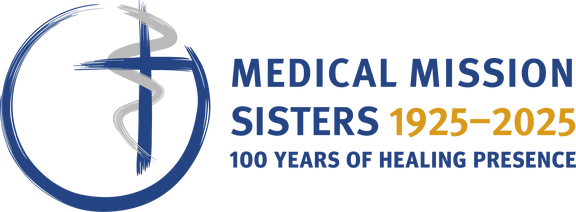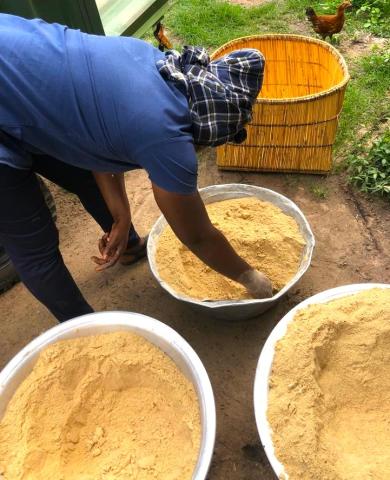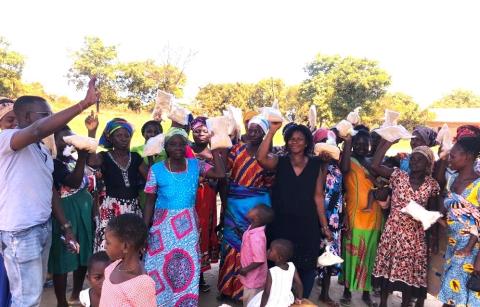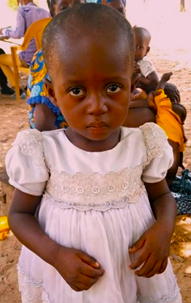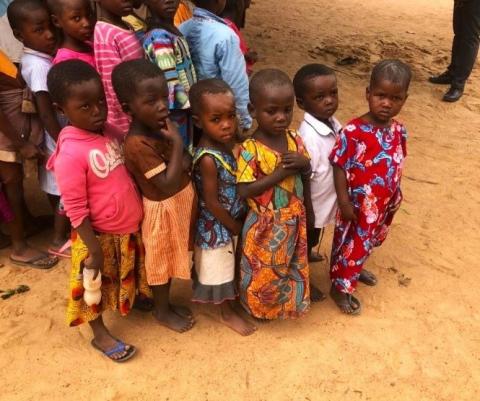Building back stronger and healthier through our Weanimix programme
In 2022, Sister Rita Amponsaa-Owusu, who leads MMS’ public health team in Kulmasa, Northern Ghana, received a grant from a UK-based charitable trust. This has enabled her and her team members to tackle malnutrition in the surrounding villages, whether among: children under-five; pregnant women; breastfeeding mothers; children with disabilities; older people; or patients with other health conditions, such as HIV/AIDS and diabetes mellitus.
Using equipment purchased by the grant, Sister Rita and her team trained 195 local women and men to make Weanimix, a highly nutritious food product that is used in Ghana to fight severe child malnutrition. After milling, roasting and packaging ingredients, grown locally on farms - notably, maize, groundnuts and soya beans - the trainees prepared a total 2,341 sachets of Weanimix for distribution to a local population of 1,734 people across the different communities within the Sawla-Tuna-Kalba district. The sachets were delivered through home visits, community durbars, school health services and mobile clinics. The results speak for themselves.
On the 8th February 2022, MMS’ public health team went for their routine home visit in a rural community. During their surveillance for children living with a disability, pregnant women and malnourished children, team members entered a house, which happened to be the home of the community volunteer. The volunteer is married to two wives and has five children by his second wife. One of the five children, a girl aged 4 called Amina, was diagnosed to have severe malnutrition with a mid-upper arm circumference of 11.8 cms and weight 9.0 kg.
The child’s parents are farmers, but only manage to engage in subsistence farming. This leaves them facing many challenges, including how to afford one square meal for the family each day. It has thrown the children and the entire family into hunger and, in turn, has made them prone to all types of nutritional conditions - including malnutrition.
The public health team started treating the severely malnourished child, Amina, with ready-to-use therapeutic food as soon as they had identified her needs and whilst waiting for the Weanimix supplement to be prepared. By the end of March 2022, they found that the child had not only developed a healthy appetite for this food and consumed all the supplies that were given during their first visit, but had sometimes even cried to have more of it. By the time of their third visit in May 2022, Amina was strong enough to be fed with Weanimix as a dietary supplement, coupled with the therapeutic food.
The interventions brought significant improvement in Amina’s health condition and well-being - as the photograph shows. The team continued to revisit and review her nutrition status until they saw maximum improvement. Then, she was weaned off her special Weanimix diet, and is now able to join in ordinary family meals.
The Weanimix intervention was also widened to include undernourished children at school after one case of a very hungry pupil was found locally, demonstrating to the public health team that, during the rainy season before the harvests arrive in and around Kulmasa, food in households is in very short supply. The team quickly discovered that many other school children risked impaired growth and development, as well as repeated bouts of infection, unless a nutritious food supplement was given to them as a matter of urgency. Weanimix was quickly distributed as part of school health programmes, making a significant difference to maintaining children’s healthy growth and development until the new harvests in the region replenished household food supplies.
Finally, as part of the programme, the mothers of the malnourished children were taught by members of the public health team how to avoid poor feeding practices and diets at home, such as inadequate breastfeeding or insufficient nutritious food which, in turn, affect the physical, social and cognitive development of children. They were given lessons in how to improve hygiene practices to prevent childhood illness and how to monitor the growth of a child. This has equipped them not only with new knowledge and understanding of how malnutrition develops, but has also taught them what they must do to prevent it.
At the start of the 2023, 32 outstanding cases of malnourished children were identified in the vicinity and MMS’ public health team continues its interventions in earnest.
